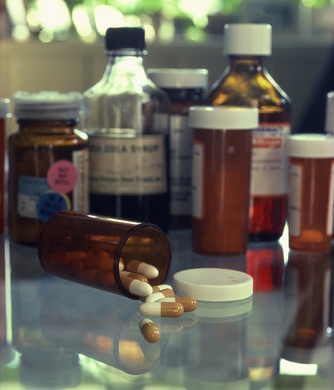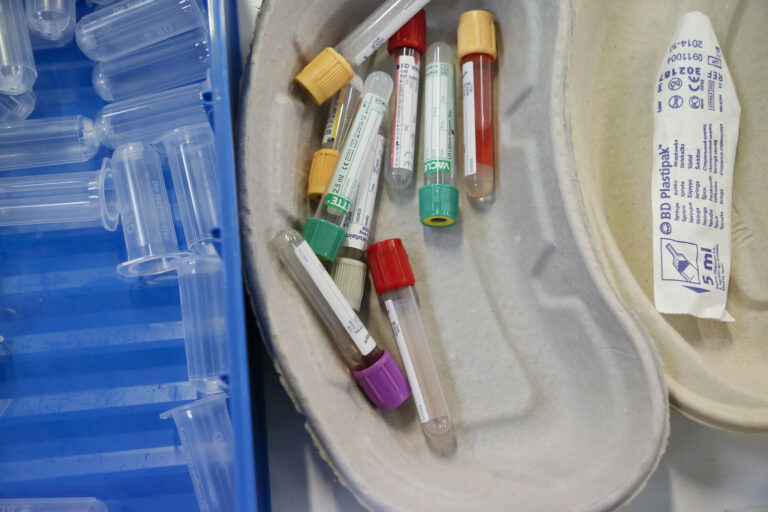
Report: ‘European supervision of medicine tests in developing countries could be better’
The European system of supervision of medicine research in developing countries could and must be improved. This is argued by SOMO in a new report commissioned by the European Parliament.
Members of the Dutch lower house are meeting today with health minister Ab Klink. Stichting Wemos has asked the members of parliament to present the results of the report Clinical trials in developing countries: how to protect people against unethical practices? to the minister. Irene Schipper (SOMO) and Annelies den Boer (Wemos) have previously discussed the results during a meeting of the Committee on Development Cooperation of the European Parliament.
Measures
Pharmaceutical companies are testing new medicines outside Europe more and more frequently, including in developing countries. Earlier reports by SOMO and Wemos have shown that certain ethical rules which are included in the Helsinki Declaration, and which are crucial to the protection of test participants in developing countries, play almost no role in the approval of medicine research by local medical-ethical evaluation boards. The same applies to the procedure for authorising new medicines for the European market. In its new report, SOMO describes which measures the European Parliament can take to improve the application of the ethical rules.
Impossible
The European bodies which are responsible for authorising new medicines for the European market are the registration authorities. SOMO concludes that, with the help of the information they currently have at their disposal, it is almost impossible for the registration authorities to verify whether medicine research has been carried out ethically or not.
This is because the registration authorities check for the presence in the registration dossier of a declaration drawn up by the applicant for the market permit itself. In this declaration, the pharmaceutical company in question declares that the medicine research in question has been carried out according to the rules.
According to Irene Schipper of SOMO, “Only a fraction of medicine research carried out outside Europe is given any further checks. At the moment, the European registration authorities can only request an inspection on site. This is locking the stable door after the horse has bolted, because the tests intended to demonstrate the effects of a medicine have long been completed by then. There must also be possibilities to raise the alarm outside the registration process. Anyone who has convincing indications that a clinical study is being carried out unethically must be able to request an inspection. Including local social organisations, in other words.”
Paid
Another observation in the report is that the European registration authorities are largely funded by pharmaceutical companies, as also shown in a recent documentary by Netwerk . According to SOMO, the central European Medicines Agency (EMEA) received 67% of its funding in 2007 from the industry. For the Dutch Board for the Evaluation of Medicines (CBG), this was 93%. Together with Germany, the UK, Denmark and Sweden, the Netherlands belongs to the top five European registration authorities which have the highest ‘turnover’ in market applications. In the report, SOMO argues for further investigation by the European Parliament into the desirability of this situation.
Application
The report primarily contains recommendations for the European Parliament, but the Dutch government could also do more, according to Annelies de Boer (Wemos): “The EMEA recently indicated that it now wished to focus more on ethics in the authorisation of medicines which are tested outside Europe. To this end, the agency wants to get started with the practical application of European and international ethical guidelines, such as the Helsinki Declaration, particularly in developing countries. Minister Klink can put pressure on the CBG to take similar steps, and thereby involve all responsible parties: the public sector, pharmaceutical companies, social organisations and experts, both in the west and in developing countries. We have already made a start by mapping out the hot potatoes in the Helsinki Declaration, such as placebo-controlled medicine research and the right to treatment after a medicine trial has ended. We will be continuing with this in the coming period, together with experts from India and Latin America.”
Related news
-
 EU health data law rolls out the red carpet for Big TechPosted in category:Long read
EU health data law rolls out the red carpet for Big TechPosted in category:Long read Irene SchipperPublished on:
Irene SchipperPublished on: -
Civil society coalition urges EU to put the interests of patients and citizens at the heart of the European Health Data SpacePosted in category:Published on:Statement
-



